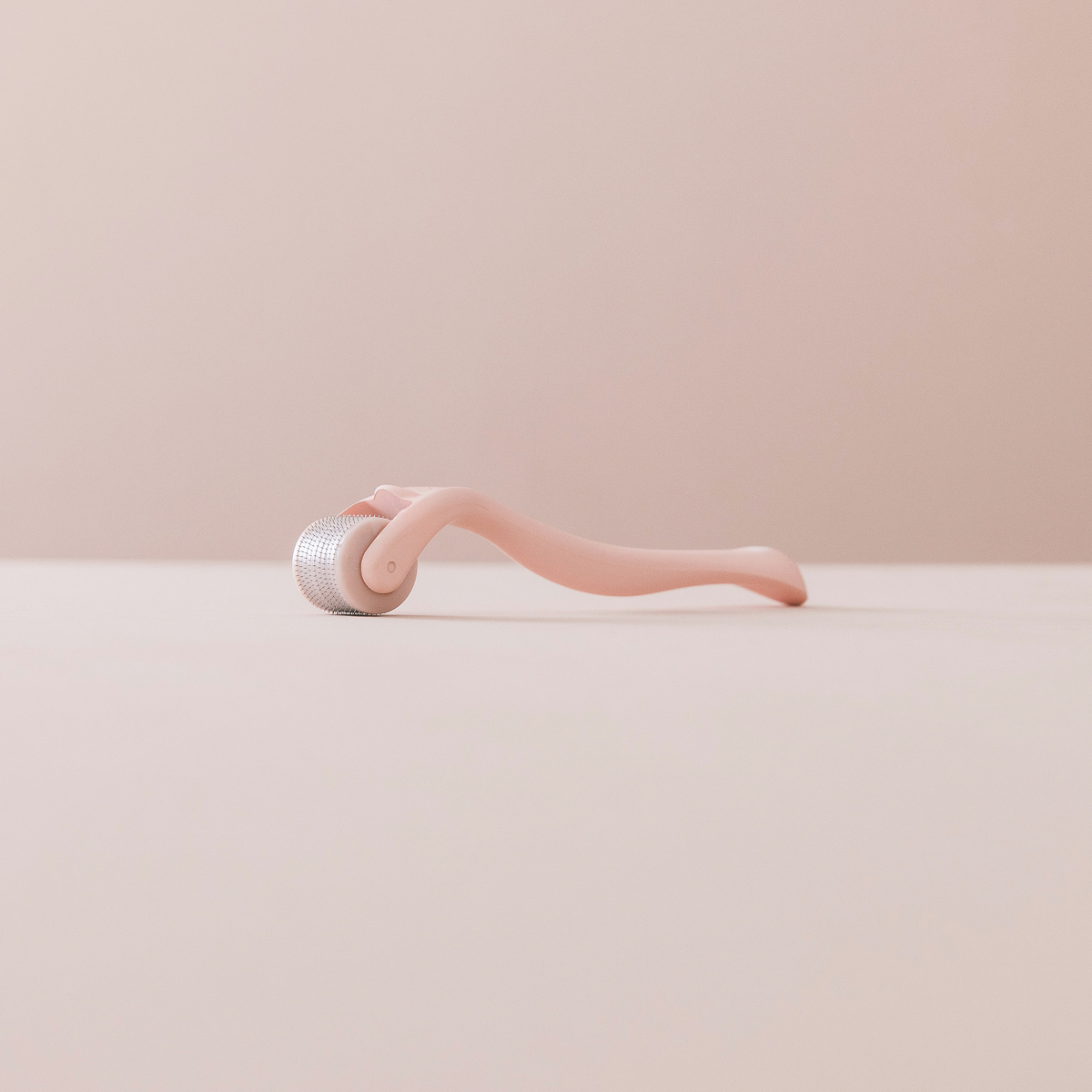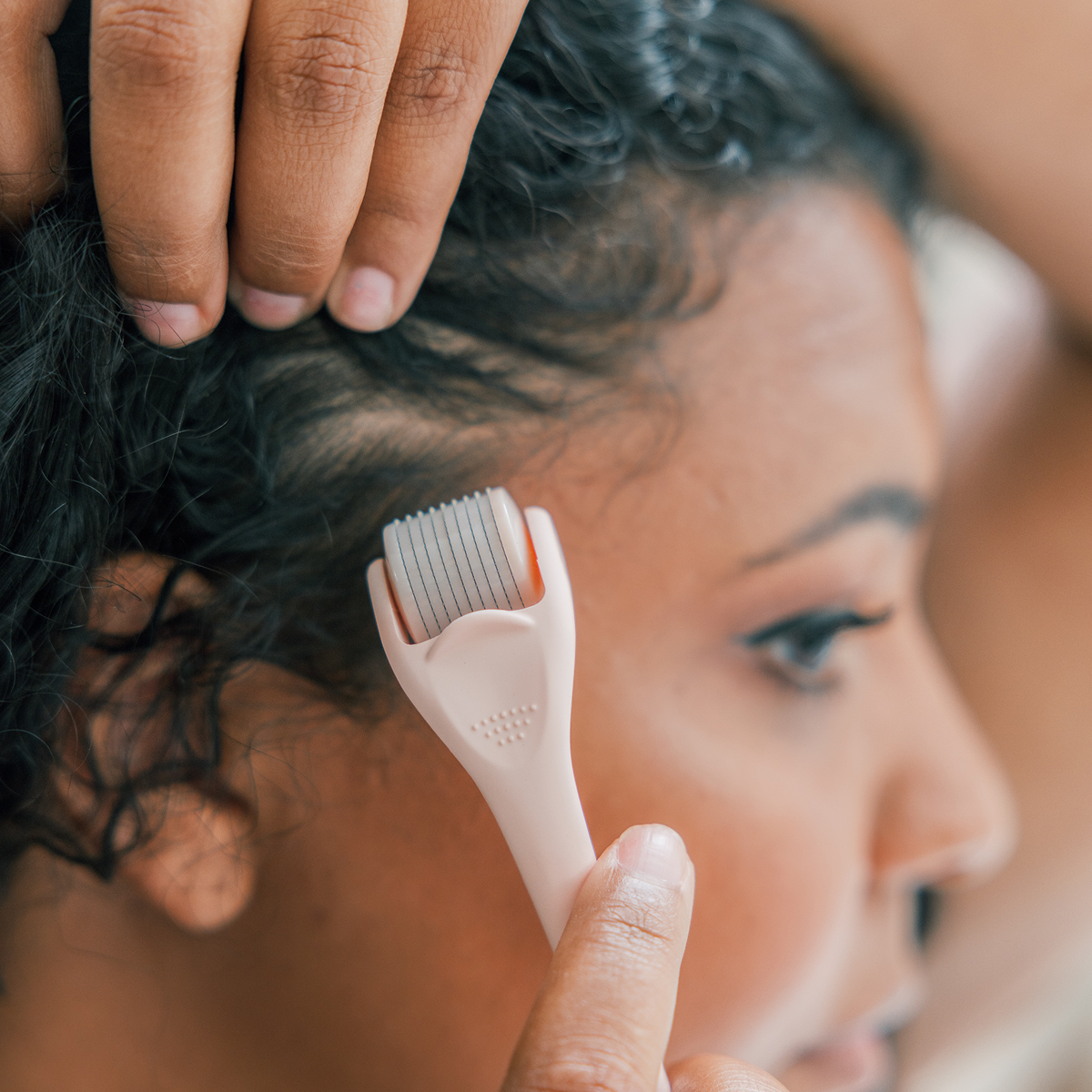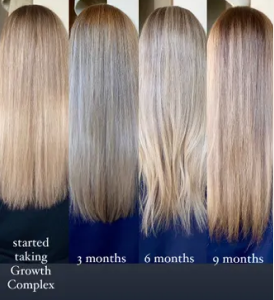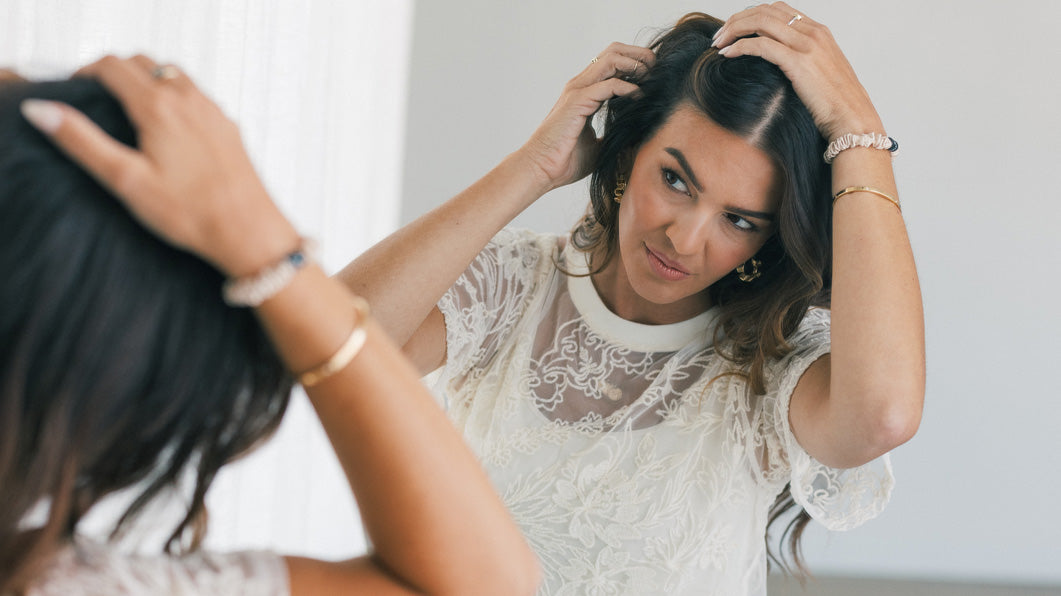Many people are looking for ways to more successfully support their hair growth goals. Whether you’re someone who is dealing with thinning or damaged hair or you’re just trying your best to support healthy hair growth before you start dealing with these problems, you may have run across zinc in your research surrounding hair growth.
Is zinc a good option for hair growth? Are you right to supplement with zinc if you’re trying to grow your hair more healthily? How much zinc do you need to support hair growth? Here’s everything you should know about zinc and its impact on hair growth.
What impact does zinc have on hair growth?
Zinc is one of the key elements in your body’s production of DNA and RNA. That means it helps your hair follicle cells maintain their health. Additionally, zinc is a critical part of tissue repair and growth, and that includes the tissue within your scalp, which is a key player in hair growth and hair conditioning, as it also helps maximize the health of the oil glands in your scalp. Finally, because it’s part of tissue repair and growth through protein and collagen creation, it can also impact strength and elasticity of hair.
What are the signs of zinc deficiency?
Many people worldwide are deficient in zinc, although it is significantly more common in the developing world than it is in the United States and other developed nations; it is generally considered quite rare to experience zinc deficiency in the United States. The Recommended Dietary Allowance, or RDA, for adults is 8mg/day for women and 11mg/day for men, which most people in the United States surpass. However, if you are experiencing zinc deficiency, you may experience these symptoms.
- Diarrhea
- Eye problems
- More infections than normal
- Wounds taking longer to heal
- Issues with taste and smell
- Skin and hair changes
- Hair loss
Will zinc help my hair grow?
Scientists have noted that low levels of zinc in the body can cause alopecia, which has caused them to wonder if supplementation with zinc could cause stronger, healthier hair. While there is no scientific consensus on whether zinc supplementation certainly works in every case, it can be a very helpful supplement for hair growth.
In one study, zinc supplementation in alopecia areata patients with low zinc levels was shown to improve hair growth. Another study, which was a review of complementary and alternative medicine options for people with alopecia, showed positive results regarding both topical and oral supplementation of zinc for a number of different alopecia patients. Patients with “female pattern hair loss,” one term for androgenetic alopecia, have also seen benefits with topical zinc supplementation. It’s important to remember, however, that there are potential side effects that can occur with excessive zinc consumption, so you should try to avoid getting more than 40mg/day unless you’ve discussed it with a doctor.
What foods can I eat that are high in zinc to support hair health?
It’s very common to be able to get enough zinc in your diet to support hair health. In the United States, it’s considered quite rare to have zinc deficiency, especially since a variety of foods, like breakfast cereals, are fortified with the nutrient, meaning that you may already be getting supplementation of zinc without even realizing it. However, if you’re looking to add zinc-rich foods to your diet, here are a few options:
- Oysters
- Crab
- Beef and other red meat
- Pork chops
- Chickpeas
- Beans and legumes
- Cashews and other nuts
Despite the availability of zinc in food, many people are interested in getting zinc as a supplement rather than supplementing in their diet, especially since the foods that are highest in zinc tend to be meat, which can cause zinc deficiency in some vegetarians. An easy way to supplement your intake is to use the HAIRLOVE Growth Complex multivitamin. With this multivitamin, you get 10mg of zinc per two capsules, which is enough for most adults to meet their zinc requirements without worrying about toxicity.
Other methods for improving hair growth
One way that you can also improve your hair growth is simply by adding other supplements. There are a number of supplements that may be able to improve hair growth: Vitamin C, selenium, Cynatine HNS, and biotin, among others.
Additionally, on top of supplementation, caring more thoroughly for your hair can be extremely important for hair growth. For example, you may want to use a derma roller to stimulate hair growth and scalp circulation with micro-punctures, add a scalp massager to your routine to exfoliate your scalp, either wet or dry, or upgrade your hair brushing experience with a Denman hair brush. In all of these cases, just caring for your hair can result in stronger hair growth.
Care for your hair more successfully
One of the best ways to add zinc and other supplementation into your diet is to add the HAIRLOVE Growth Complex vitamin. This multivitamin allows you to supplement with vitamin C, vitamin E, biotin, pantothenic acid, zinc, selenium, Cynatine HNS, and Bioperine all at once. All you need to do is take two capsules in the morning with a glass of water, and you’ll be getting a variety of supplements that can benefit your body overall, as well as specifically your hair.
Zinc can be an incredibly helpful supplement for your daily beauty needs, and if you’re thinking about adding zinc to your daily routine, a multivitamin can be a great way to get there.



























